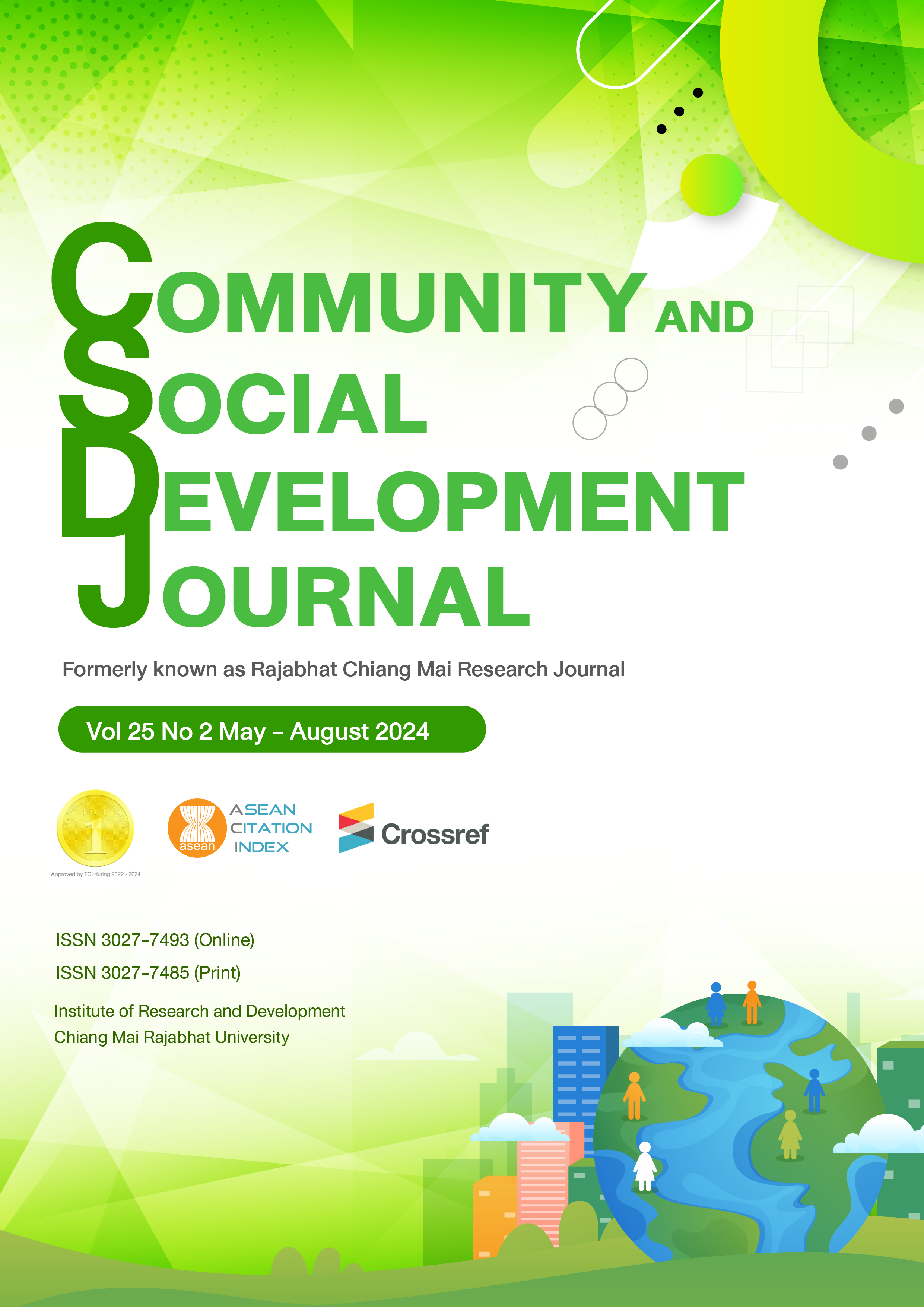Environmental Laws Awareness and Green Household Practices among Pre-service Teachers of Batangas State University-JPLPC Malvar, Philippines
DOI:
https://doi.org/10.57260/csdj.2024.266579คำสำคัญ:
Awareness, Practice, Environmental laws, Green household, Teacher education studentsบทคัดย่อ
The significance of schools and educators in fostering environmental awareness cannot be overstated. This descriptive correlational study aims to evaluate the level of awareness of environmental laws and the adoption of green household practices among pre-service teachers at a state university in the Philippines. By utilizing a modified research questionnaire and appropriate statistical analyses, the study reveals that respondents possess awareness of the environmental laws in place in the Philippines. When it comes to green household practices, respondents practiced waste management and demonstrate a high practice of resource management. Upon correlating these two variables, a significant relationship emerges, underscoring the influence of pre-service teachers' environmental law awareness on their adoption of green household practices. To further enhance environmental awareness and promote sustainable living, the study recommends the implementation of seminars or webinars that focus on imparting knowledge about green household practices and their role in fostering sustainability.
Downloads
เอกสารอ้างอิง
Ajzen, I. (1991). The theory of planned behavior. Organizational behavior and human decision processes, 50(2), 179–211. DOI:10.1016/0749-5978(91)90020-T
Barloa, E. P., Lapic, L. P., & Dela Cruz, C. P. P. (2016). Knowledge, attitudes, and practices on solid waste management among undergraduate students in a philippine state university. Journal of environment and earth science, 6(6), 146-153. Retrieved from https://www.iiste.org/Journals/index.php/JEES/article/view/31197
Butcher, J. H. (2015). Eenvironmental literacy and its implications for effective public policy formation. Baker Scholar Projects.
Demirbas, A. (2010). Waste management, waste resource facilities and waste conversion processess. Energy conversion and management, 52(2), 1280- 1287. Retrieved from https://www.sciencedirect.com/science/article/pii/S0196890410004279
Gonzales, C. G., Razzaque, J., Alam S., & Atapattu, S. (2015). International environmental law and the global south. Cambridge University Press.
Gorman-Murray, A. (2011). Material geographies of household sustainability. London: Routledge press.
Labog, R. A. (2017). Teachers’ integration of environmental awareness and sustainable development practices. Asia pacific journal of multidisciplinary research, 5(3), 102- 110. Retrieved from https://www.apjmr.com/apjmr-vol-5-no-3-part-ii/
Lualhati, G. P. (2019). Environmental awareness and participation of filipino pre- service teachers. Jurnal pendidikan biologi indonesia, 5(2), 345- 352. Retrieved from https://ejournal.umm.ac.id/index.php/jpbi/article/view/8524
Norshariani, A. R., Lilia, H., Abdul, R. A., & Tuan, M. T. S. (2018). Challenges of environmental education: inculcating behavioural changes among indigenous students. Creative education, 9(1), 43-55. Retrieved from https://www.scirp.org/journal/paperinformation.aspx?paperid=81866
Rabiatul, A. A. R., & Mohd, S. S. (2018). Green ict and environmental sustainability: awareness of malaysian teachers. International journal of engineering and technology, 7(4.38), 1012-1016. Retrieved from https://www.sciencepubco.com/index.php/ijet/article/view/27628
Sebastian, N., Rebecca, S., Thayse, D. P., Armando, D, D., & Osmar, V. A., Gilson, L. D. S. (2021). The relationships between knowledge, behavior and environmental education among families from vulnerable socioeconomic conditions. Research, society and development, 10(10), 1-9. Retrieved from https://rsdjournal.org/index.php/rsd/article/view/19125
Shyang-Chyuan, F. (2018). The influence of parental education on the environmental education of pre-schoolers: a case study of self-designed picture book. Journal of baltic science education, 17(2),187-199. Retrieved from https://www.scientiasocialis.lt/jbse/?q=node/651
Suzana, N., & Margaret, A, C. (2020). Reducing and recycling waste in zambian schools: an exploratory study. The journal of solid waste technology and management, 46(3),342-349. Retrieved from https://doi.org/10.5276/JSWTM/2020.342
ดาวน์โหลด
เผยแพร่แล้ว
รูปแบบการอ้างอิง
ฉบับ
ประเภทบทความ
สัญญาอนุญาต
ลิขสิทธิ์ (c) 2024 Community and Social Development Journal

อนุญาตภายใต้เงื่อนไข Creative Commons Attribution-NonCommercial-NoDerivatives 4.0 International License.
1. บทความ ข้อมูล เนื้อหา รูปภาพ ฯลฯ ที่ได้รับการตีพิมพ์ใน “Community and Social Development Journal” ถือเป็นลิขสิทธิ์ของ Community and Social Development Journal มหาวิทยาลัยราชภัฏเชียงใหม่ และเพื่อให้เผยแพร่บทความได้อย่างเหมาะสมผ่านสื่อสิ่งพิมพ์และอิเล็กทรอนิกส์ ผู้เขียนยังคงถือครองลิขสิทธิ์บทความที่ตีพิมพ์ภายใต้ใบอนุญาต Creative Commons Attribution (CC BY) ซึ่งอนุญาตให้เผยแพร่บทความซ้ำในแหล่งอื่นได้ โดยอ้างอิงต้องอ้งอิงบทความในวารสาร ผู้เขียนต้องรับผิดชอบในการขออนุญาตผลิตซ้ำเนื้อหาที่มีลิขสิทธิ์จากแหล่งอื่น
2. เนื้อหาบทความที่ปรากฏในวารสารเป็นความรับผิดชอบของผู้เขียนบทความโดยตรง ซึ่งกองบรรณาธิการวารสารไม่จำเป็นต้องเห็นด้วยหรือร่วมรับผิดชอบใดๆ














